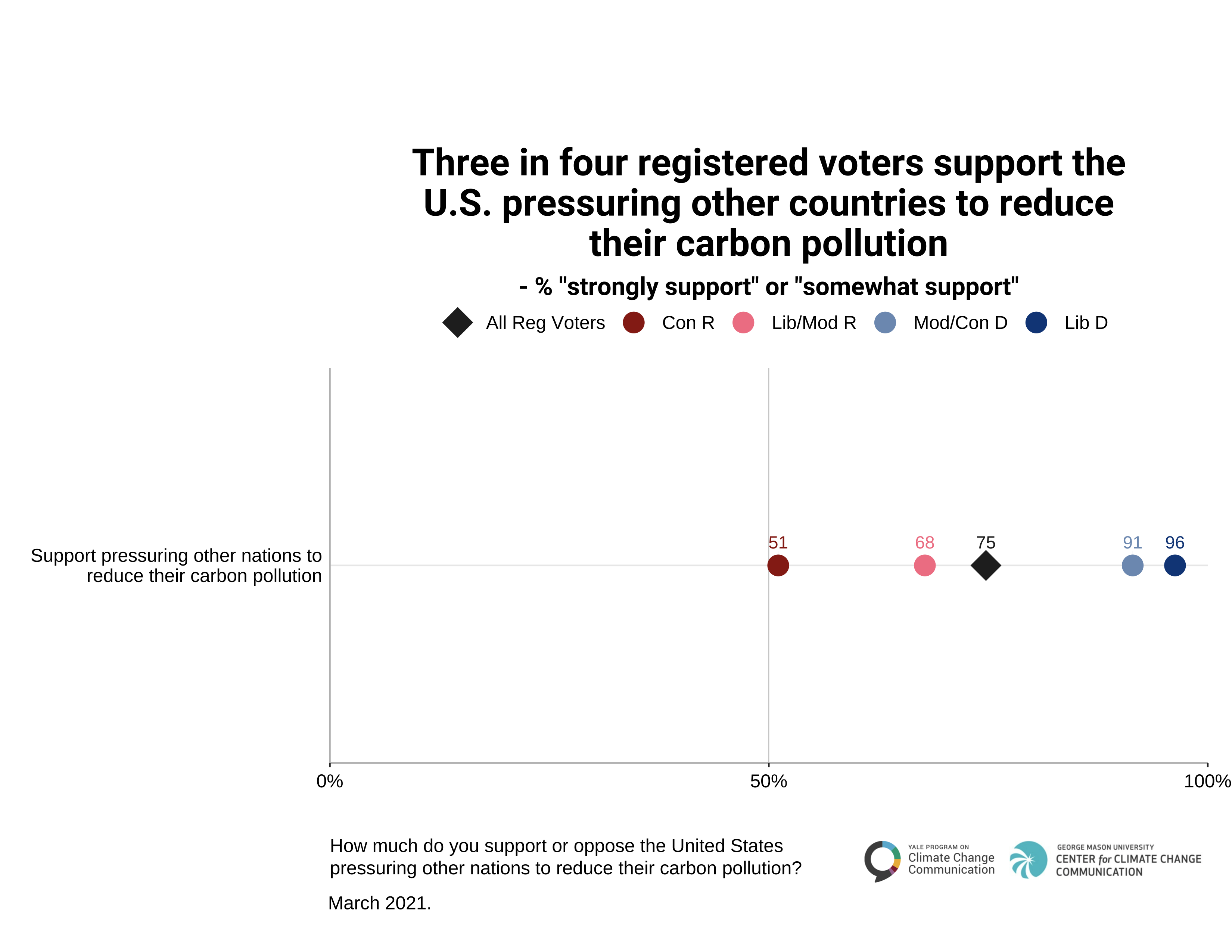Report · Apr 19, 2021
Public Support for International Climate Action, March 2021
By Anthony Leiserowitz, Edward Maibach, Seth Rosenthal, John Kotcher, Jennifer Carman, Xinran Wang, Matthew Goldberg, Karine Lacroix and Jennifer Marlon
Filed under: Policy & Politics
2. How Should the U.S. Interact with Other Countries to Act on Global Warming?
2.1. A majority of registered voters support U.S. participation in the Paris Climate Agreement.
In December, 2015, officials from 197 countries (nearly every country in the world) met in Paris at the United Nations Climate Change Conference and negotiated a global agreement to limit global warming. On Earth Day, April 2016, the United States and 174 other countries signed the agreement, with all of the other countries following suit. On June 1, 2017, President Trump announced that the United States would withdraw from the agreement, and on November 4, 2020, the day after the U.S. presidential election, the U.S. formally withdrew. President Biden rejoined the agreement soon after his inauguration on January 20, 2021, and the United States officially became a party to the agreement again on February 19.
Seven in ten registered voters (70%) support U.S. participation in the Paris Climate Agreement, but support varies by party. Nearly all liberal Democrats (96%) and moderate/conservative Democrats (96%) support U.S. participation. Six in ten liberal/moderate Republicans (60%) support U.S. participation in the agreement as do about one in three conservative Republicans (35%).
2.2. A majority of registered voters support the U.S. providing aid and support to developing countries for climate mitigation and adaptation.
More than half of registered voters support providing financial aid and technical support to developing countries to limit their greenhouse gas emissions (i.e., mitigation, 58%) and to help them prepare for the impacts of global warming (i.e., adaptation, 54%).
Large majorities of liberal Democrats support providing aid for mitigation (89%) and adaptation (87%), as do most moderate/conservative Democrats (mitigation, 79%; adaptation, 74%). Providing financial aid and technical support to developing countries is supported by fewer than half of liberal/moderate Republicans (mitigation, 46%; adaptation, 38%) and even fewer conservative Republicans (mitigation, 26%; adaptation, 19%).
2.3. Three in four registered voters support the U.S. pressuring other countries to reduce their carbon pollution.
Three in four registered voters (75%) support the United States pressuring other countries to reduce their carbon pollution. This includes nearly all liberal Democrats (96%) and moderate/conservative Democrats (91%), a majority of liberal/moderate Republicans (68%), and about half of conservative Republicans (51%).


